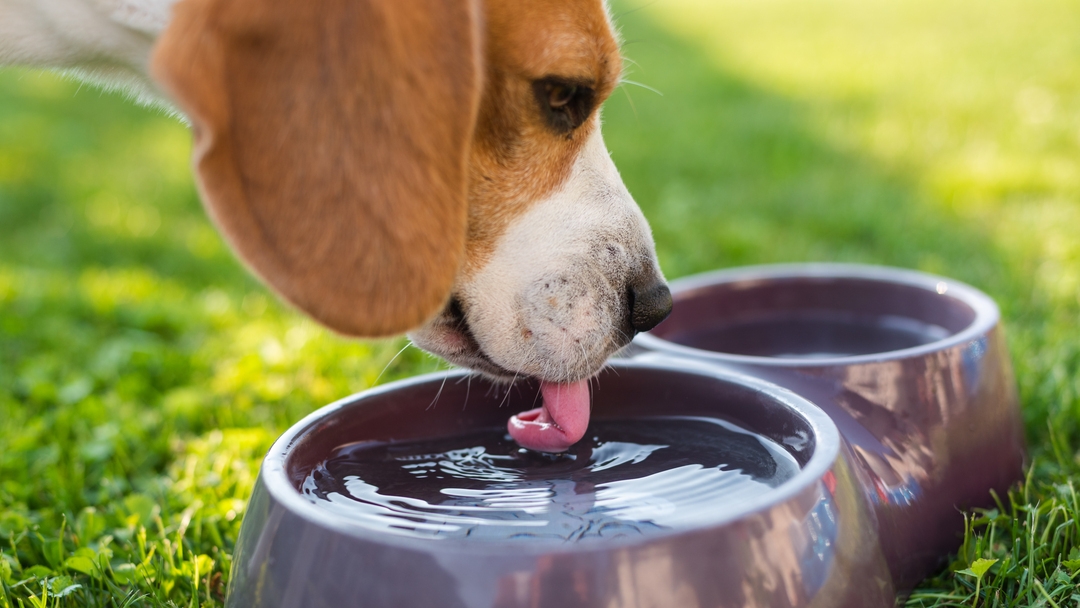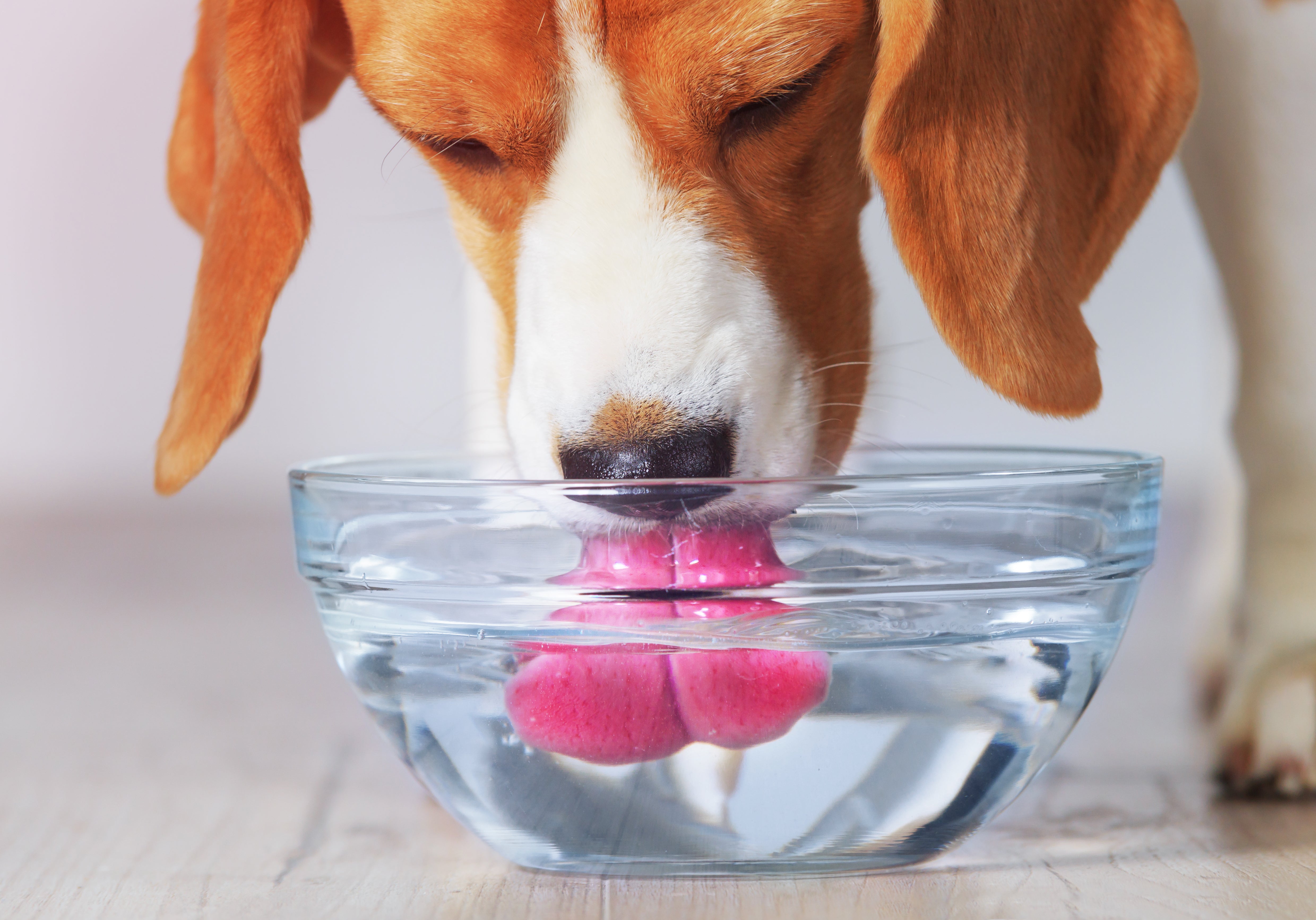Have you ever wondered if chihuahuas can drink water? Well, you may be surprised to know that chihuahuas, just like other dogs, do need to drink water to stay hydrated. Despite their small size, chihuahuas have the same basic needs when it comes to water intake as larger breeds. Water is essential for maintaining their overall health and well-being.
Chihuahuas, being small and fragile, are prone to dehydration if they don’t get enough water. One interesting fact about chihuahuas is that they have a relatively high metabolic rate, which means they require more water compared to some other dog breeds. As responsible chihuahua owners, it is crucial to provide them with clean, fresh water throughout the day to prevent dehydration. Keeping their water bowl easily accessible and refilling it regularly ensures that they stay properly hydrated, promoting optimal health and vitality. So, the next time you see your chihuahua taking a sip of water, rest assured that they are just quenching their thirst like any other dog.

Can Chihuahuas Drink Water?
Chihuahuas are adorable small dogs that make great companions. If you own a Chihuahua or are considering getting one, you may be wondering if they have any specific water needs. In this article, we will explore the topic of whether Chihuahuas can drink water and discuss the importance of proper hydration for these pint-sized pups.
Hydration Needs of Chihuahuas
Like all dogs, Chihuahuas require access to clean, fresh water at all times. Water is essential for numerous bodily functions, including digestion, temperature regulation, and the transportation of nutrients. Chihuahuas, despite their small size, have the same basic hydration needs as larger dog breeds.
It’s important to note that Chihuahuas can do well with smaller water bowls due to their petite stature. However, this doesn’t mean they need less water overall. They still require an adequate amount of water to stay properly hydrated. Dehydration can lead to serious health issues, so it’s crucial to ensure your Chihuahua has easy access to water throughout the day.
It’s worth mentioning that the water requirements of a Chihuahua can vary depending on factors such as age, activity level, and environmental conditions. If your Chihuahua is very active or spends a lot of time outdoors in hot weather, they may need more water to stay hydrated. Always monitor your dog’s water intake and offer more if needed.
Water Bowl Placement
The placement of your Chihuahua’s water bowl can also affect their hydration habits. It’s best to place the water bowl in an easily accessible location that is away from their food bowl. Dogs instinctively prefer to have their water source separate from their food. Additionally, avoid placing the water bowl near their bed or sleeping area to prevent accidents.
Some Chihuahuas may also prefer elevated water bowls to accommodate their shorter necks. This can help make drinking more comfortable for them and reduce the risk of choking or swallowing air while drinking. Experiment with different bowl heights to find what works best for your Chihuahua.
Remember to clean your Chihuahua’s water bowl regularly to ensure it remains free of bacteria and contaminants. Dirty water bowls can discourage dogs from drinking enough water, leading to dehydration. Wash the bowl daily and provide fresh water to promote good hygiene and overall health for your Chihuahua.
Signs of Dehydration in Chihuahuas
Chihuahuas, like any other dogs, can become dehydrated if they don’t have adequate access to water. It’s important to be aware of the signs of dehydration so you can take prompt action if necessary. Some common signs include:
- Excessive panting
- Dry gums and nose
- Lethargy or weakness
- Loss of appetite
- Sunken eyes
- Decreased urination
If you notice any of these signs in your Chihuahua, it’s crucial to offer them water immediately and monitor their behavior closely. If the symptoms persist or worsen, it’s best to consult a veterinarian, as dehydration can have serious health consequences.
Chihuahua-Specific Factors to Consider
While Chihuahuas can drink water like any other dog, there are a few factors specific to this breed that you should keep in mind:
- Chihuahuas have a higher risk of dental issues, so providing access to fresh water can help promote dental hygiene.
- Being a small breed, Chihuahuas have a smaller bladder capacity. This means they may need to urinate more often and, in turn, drink water more frequently.
- If your Chihuahua is prone to bladder or kidney issues, your veterinarian may recommend specific water intake guidelines to prevent further complications.
Always consult with your veterinarian for personalized advice regarding your Chihuahua’s water intake based on their specific health needs.
Traveling and Water Availability
When traveling with your Chihuahua, it’s important to ensure they have access to water at all times. Bring a portable water bowl and pack enough water for the duration of the trip, especially if you’ll be in areas where water sources may be limited.
If you’re unsure about the quality or availability of water at your travel destination, consider bringing bottled water specifically for your Chihuahua. This can help to avoid any potential gastrointestinal issues caused by unfamiliar water sources.
Offer water to your Chihuahua regularly during travel breaks, and monitor their hydration levels closely. Remember, staying hydrated is crucial for their well-being, regardless of where you are.
Conclusion
Proper hydration is essential for the overall health and well-being of Chihuahuas. They need access to fresh water at all times to stay properly hydrated. Remember to monitor their water intake, provide a clean and accessible water bowl, and be aware of any signs of dehydration. By taking these simple steps, you can ensure that your Chihuahua remains healthy and happy.
Can Chihuahuas Drink Water? Key Takeaways
- Chihuahuas can and should drink water on a daily basis.
- Water is essential for chihuahuas to stay hydrated and maintain overall health.
- Provide clean and fresh water to your chihuahua at all times.
- Avoid giving your chihuahua excessive amounts of water to prevent bloating.
- Monitor your chihuahua’s water intake and consult with a veterinarian if you have any concerns.
Frequently Asked Questions
Welcome to our frequently asked questions section about whether chihuahuas can drink water. We understand that as a pet owner, you want to ensure your furry friend is well taken care of. Here are some common questions related to chihuahuas and their water intake.
1. How much water should I give my chihuahua?
Chihuahuas, like other dogs, require access to fresh water throughout the day. The amount of water they need can vary based on factors such as their size, activity level, and the climate they live in. On average, a chihuahua should drink about 1/2 to 1 ounce of water per pound of their body weight per day. For example, a 4-pound chihuahua would need approximately 2 to 4 ounces of water daily.
It’s essential to monitor your chihuahua’s water intake and adjust the amount accordingly. However, avoid overfeeding water, as it can lead to water intoxication, which is a rare condition but can be dangerous. Always consult with your veterinarian for personalized advice.
2. Can chihuahuas drink tap water?
Generally, tap water is safe for chihuahuas to drink, as it is for other dogs. However, if you notice any signs of digestive upset or if your tap water contains high levels of minerals or contaminants, it may be best to provide your chihuahua with filtered or bottled water. Some chihuahuas can be sensitive to certain elements in tap water, so it’s crucial to ensure their drinking water is clean and safe.
Remember to clean your chihuahua’s water bowl regularly to prevent bacteria growth and provide fresh water daily to promote hydration.
3. Is it okay to leave water out for my chihuahua all the time?
Yes, it is generally recommended to leave water out for your chihuahua at all times. Chihuahuas, like other dogs, have a natural instinct to regulate their water intake. Having access to water throughout the day allows them to drink when they’re thirsty.
However, monitor your chihuahua’s water intake and consult with your veterinarian if you notice any unusual changes, such as excessive drinking or no interest in water, as it could be a sign of an underlying health issue.
4. Can chihuahuas drink other liquids besides water?
While water is the best and most important source of hydration for chihuahuas, they can also consume other liquids in moderation. It is generally okay to offer your chihuahua diluted, unsweetened fruit juices or low-sodium broth as an occasional treat. However, avoid giving them caffeinated beverages, dairy milk, or alcoholic drinks, as these can be harmful to their health.
Always consult with your veterinarian before introducing any new liquids into your chihuahua’s diet to ensure they are safe and suitable for their specific needs.
5. Are there any signs of dehydration I should watch out for in my chihuahua?
Yes, as a responsible pet owner, it’s crucial to be able to recognize the signs of dehydration in your chihuahua. Some common signs include dry gums, sunken eyes, loss of skin elasticity, excessive panting, lethargy, and dark yellow urine. If you notice any of these symptoms, encourage your chihuahua to drink water and seek immediate veterinary attention if the symptoms persist or worsen.
Preventing dehydration is key, so always ensure your chihuahua has access to fresh water and monitor their water intake, especially in hot weather or during periods of increased physical activity.

Chihuahua drinking water
To summarize, we’ve discussed the importance of using a first-person point of view and maintaining a professional tone. It’s crucial to keep in mind that our target audience is 13-year-old readers, so we should use simple language and avoid using jargon. Remember, each sentence should present a single idea in a concise manner, with no more than 15 words per sentence.
In conclusion, by following these guidelines, we can ensure that our writing is engaging and accessible for our young readers. By using a conversational tone and clear language, we can effectively convey our key points and leave them with a solid understanding of the article’s content.
